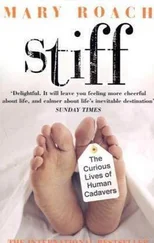Macdougall enlisted the help of two fellow physicians, Drs. Sproull and Grant, who chose not—or possibly weren’t invited—to put their names on the research paper. The plan was to install a cot on the scale platform and then install a dying consumptive on the cot. Death from consumption is a still, quiet affair, and so it fit Macdougall’s conditions “to a nicety,” as he put it. “A consumptive dying after a long illness wasting his energies, dies with scarcely a movement to disturb the beam, their bodies are also very light, and we can be forewarned for hours that a consumptive is dying.” I found his enthusiasm at once endearing and a little troubling. I imagined him addressing the ward as he canvassed for volunteers. (Macdougall wrote in the Journal of the American Society for Psychical Research that he secured his subjects’ consent some weeks before their deaths.) You people are just perfect for this project. A, You’re easy to lift , B, you’re practically comatose when you go …. Who knows what the consumptives made of it, or whether they were too out of it to know what he was asking.
At 5:30 p.m. on April 10, 1901, Patient 1’s death—“my opportunity,” Macdougall called it—was declared imminent. A male of ordinary build and “standard American temperament,” he was wheeled from the ward and lifted onto the scale like a depleted bolt of silk. Macdougall summoned his partners. For three hours and forty minutes, the physicians watched the man fade. In place of the more usual bedside attitudes of grief and pity, the men assumed an air of breathless, intent expectancy. I imagine you see this on the faces of NASA engineers during countdown and, possibly, vultures.
One doctor watched the man’s chest; another, the movements of his face. Macdougall himself kept his eyes on the scale’s indicator. “Suddenly, coincident with death,” wrote Macdougall, “the beam end dropped with an audible stroke hitting against the lower limiting bar and remaining there with no rebound. The loss was ascertained to be three-fourths of an ounce.” Which is, yes, twenty-one grams. Hollywood metricized its reference to the event for the simple reason that 21 Grams sounds better. Who’s going to go see a movie called Point Seven Five Ounces?
Over the years, Macdougall repeated the experiment on five more patients. A paper summarizing his findings ran in the journal American Medicine in 1907. In the months that followed, dubious M.D s launched their criticisms in lengthy letters to the editor. Macdougall countered them all. One correspondent pointed out that the sphincter and pelvic floor muscles relax at death, and that the loss was perhaps urine and/or feces. Macdougall patiently replied that if this were the case, the weight would remain upon the bed and, therefore, upon the scale. Someone else suggested that the dying patients’ final exhalation might have contributed to the drop in weight. To prove that it hadn’t, Macdougall gamely climbed onto the cot and exhaled “as forcibly as possible,” while Sproull watched the scale. No change was observed.
The most likely culprit was something called “insensible loss”: body weight that is continually being lost through evaporating perspiration and water vapor in one’s breath. Macdougall claimed to have accounted for this. His first patient, he wrote, lost water weight at the rate of an ounce per hour, far too slowly for insensible loss to explain the sudden three-quarter-ounce drop at death.
THE HISTORICAL AUTHORITY on insensible weight loss is a Paduan physiologist named Sanctorius. Known humdrumly as the “founding father of metabolic balance studies,” Sanctorius coined the term “insensible perspiration” in 1690, in a diverting volume entitled Medicina statica . [13] Medical treatises were eminently more readable in Sanctorius’s day. Medicina statica delves fearlessly into subjects of unprecedented medical eccentricity: “Cucumbers, how prejudicial,” “Phlebotomy, why best in Autumn,” and the tantalizing “Leaping, its consequences.” There’s even a full-page, near-infomercial-quality plug for something called the Flesh-Brush.
To aid him in his research, Sanctorius devised an experimental scale of his own. He suspended a platform on a massive steelyard scale. The platform held a bench with a hole cut out of the center of it and a bucket underneath it, and in front of the platform stood a supper table: Out box and In box. Sanctorius sat himself down on the platform, enjoyed a meal, and then sat around on the scale for eight hours, availing himself of the bucket when needed. He then weighed, to use his exuberantly capitalized phrasings, “the Excrements of the Guts”—observing on an unrelated tangent that “the thick ones are lighter and swim .” Sanctorius found that a small portion of the food weight remained unaccounted for, i.e., wasn’t down there in the bucket. This he ascribed to evaporated sweat and breath vapor, which he collectively dubbed insensible perspiration.
Sanctorius calculated that an eight-pound intake of meat and drink will, over one day, yield five pounds of insensible perspiration—or an average of three ounces of sweat and breath vapor lost per hour: three times the rate Macdougall observed. At one point Sanctorius describes the digestion of “a supper of eight pounds.” [14] Astoundingly, Sanctorius was described as a small man. His work habits may explain his ability to stay slim in an era of eight-pound dinners. He claimed to have tested ten thousand subjects over twenty-five years.
It soon became clear there was little overlap between the dripping trencherman of Sanctorius’s day and Macdougall’s dry little consumptives. I skipped ahead to Section VI, which was all about the effects of immoderate coitus on insensible perspiration. Sanctorius effected the quaint habit of presenting his findings in the form of aphorisms. As in, “Aphorism XXXIX: Such a Motion of a Body as resembles that of a Dog in Coition, is more hurtful than a bare Emission of Semen; for the latter wearies only the internal Parts, but the other tires both the Bowels and the Nerves.” Or “Aphorism XL: To use Coition standing, after a Meal, is hurtful; because as it is upon a full Meal, it hinders the Offices of the Bowels.” Sanctorius preached that by obstructing insensible perspiration, immoderate sex led to everything from “Palpitations in the Eyebrows and Joynts” to a hardening of the tunicles of the eyes—and here we have what I surmise to be the original striking of the masturbation-makes-you-go-blind myth. Sanctorius preached a carnal moderation that seemed almost killjoy—all the more so for the book’s wanton promotion of oysters as sources “of the greatest possible nourishment.”
TO GET TO THE bottom of the insensible weight loss conundrum—is it an ounce per hour, as Macdougall calculated, or is it three?—I called America’s modern-day Sanctorius, Eric Ravussin. Ravussin, currently with the Pennington Biomedical Research Center in Baton Rouge, used to run metabolic chamber studies for the National Institutes of Health. He, too, has measured insensible water loss during sleep—by tucking volunteers into beds on platform scales inside the chamber. His findings came in right beside Macdougall’s: about an ounce per hour. Macdougall was right: It would be hard to imagine insensible water loss as the force behind an instantaneous drop of three-fourths of an ounce.
Ravussin had no idea what could have caused the abrupt weight loss. He referred me to a book by Max Kleiber, called The Fire of Life: An Introduction to Animal Energetics . Though a tad formula-heavy for the likes of me, the book is as diverting in spots as was Sanctorius’s. We learn, for instance, that the “extra-large vagina of the Brahman cow is an effective organ for heat dissipation.” In a similar vein, Schmidt-Nielsen “observed that a camel’s rectal temperature may rise during a day from 34.2 to 40.7 C,” though I doubt that, strictly speaking, observation alone did the trick. Sometimes you have to get right in there, as Kleiber himself did in 1945, calculating “the insensible weight loss of cows in pasture by preventing their water and food intake with a muzzle and collecting and weighing all feces and urine.” I skimmed the entire book, looking for some reference to a sudden weight drop at death. I found nothing. There is only so much one can do. In the words of Max Kleiber, “If we insisted on meeting all our fuel needs with eggs, we would soon reach the end.” Or something.
Читать дальше











